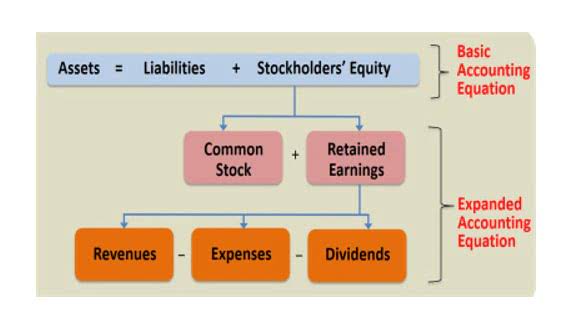
The word “million” is not a commonly abbreviated word, but its abbreviations still have their place. An abbreviation for million is most often seen in financial documents and paperwork. Swap the word “million” for “mil” or “mm” to avoid redundant language but to still Sales Forecasting be specific in how large numbers you’re working with. Other numbers, such as “thousand,” have more interesting abbreviations, such as “k.” The three letters “mil” are very clearly defined as mbeaning million, so you shouldn’t run into any issues. In finance and accounting, MM (or lowercase “mm”) commonly denotes that the units of figures presented are in millions.

How To Format a Two-Page Resume (And When You Actually Need One)

However, there are official abbreviations out there that you might come across, and it would help to know about them. We’ll explain the correct abbreviation for “million” in this article. Does not make any guarantee or another promise as to any results that may be obtained from using our content. No one should make any investment decision without first consulting his or her own financial advisor and conducting his or her own research QuickBooks and due diligence.
To ‘M’ or Not to ‘M’: The History and Conventions of Abbreviating Million

As finance becomes more globalized, MM remains a valuable tool for efficient communication and understanding across industries. It also saves space and enhances readability in financial reports, statements, or ledgers where space might be limited. Furthermore, using MM can make a large-scale monetary value easier to quickly grasp, both visually and conceptually, as it simplifies the financial quantities being discussed or presented. The term enables clarity and consistency, reducing the risk of misunderstandings due to different interpretations of number notation. Similarly, the best way to abbreviate billions on a resume is “B.” You can spell out “billion,” but don’t use “BB” — the double letter is only used in millions to avoid confusion. So, “10,000,000” could become “10MM” or “10M.” “10 million” is also acceptable, but don’t use “10mill,” which is overly informal — stick to the more common abbreviations.

a. Historical Background on Abbreviations
- The use of “MM” became more entrenched as these standards aimed to harmonize financial reporting across different jurisdictions, ensuring consistency and comparability.
- While you can make MM stand for millions of anything, it’s important that the reader knows whether you’re talking about dollars, euros, units shipped, etc.
- The abbreviation “mn” is used in parts of Europe, particularly France and Italy.
- This is particularly important in scenarios where quick decision-making is required, such as during mergers and acquisitions or when assessing investment opportunities.
The Greek option is typically capitalized when multiple abbreviations are used for accounting purposes. Roman abbreviations are usually not capitalized when using this method (1MM vs. 1mm), but each firm has different standards they follow. The use of MM to represent a million originated from the Roman numeral system, where “M” stands for thousand. When used in the context of finance or the stock market, “MM” is used to represent a thousand thousand, or a million. It’s a concise way to denote large amounts without taking up a lot of space on the page or screen.
Is million abbreviated as M or MM?
- Wondering how to abbreviate million, billion, and thousand on a resume?
- If you had a commercial property valued at $92 million, a modern writer would likely abbreviate the expression by saying it was worth $92M.
- 1 million watts abbreviates to 1MW or “megawatt” and in geology, one million years ago is often abbreviated to “1 mya”.
- In press releases, annual reports, investment memos, and other communications, skilled writers leverage these sorts of shorthand techniques to achieve the optimal information density.
- The best (and most common) way to abbreviate millions on a resume is “MM.” It’s clear and easy to understand, which is the key to successfully abbreviating numbers.
- If you have to spend time counting how many zeroes are after a number to understand the full amount, it’ll take extra time to understand what is being communicated to you by an accountant.
Use “MM” when evaluating financial or statistical documents for clarification. Writers should avoid using “M” in technical texts or research articles and stick to the proper abbreviation prescribed by the authorized body, where necessary. Though there is no globally accepted standard, there are country-specific standards. For example, the International System of Units (SI) recommends using “M” for million. Various civilizations use unique forms of abbreviations throughout history. Classical scholars used symbols for denoting quantities and measurements.

One of the primary benefits of using “MM” in international reporting is its ability to reduce ambiguity. Financial documents often traverse multiple jurisdictions, each with its own set of conventions and terminologies. By employing “MM,” companies can present their financial data in a universally understood format, minimizing the risk of misinterpretation. This is particularly important in cross-border transactions and investments, where accurate financial information mm meaning is crucial for decision-making. As commerce and trade expanded during the Renaissance, the need for more sophisticated financial reporting became apparent.
Is “MM” the Same as “M” for Million?
- Some style guides might opt for the complete “million” or have their own prescribed abbreviation, so it’s essential to consult the relevant guidelines before finalizing your writing.
- This guide will explore how the notation should be used, as well as alternative symbols that are used in practice.
- Our goal is to create English lessons that are easy to understand for everyone.
- The use of MM to represent a million originated from the Roman numeral system, where “M” stands for thousand.
- Let’s look at a few examples from real resumes of how to abbreviate million on a resume.
One thing to consider is that when writing about large amounts of money, the words “million” or “billion” are often left out altogether, as are superfluous zeroes. Maximizing the impact of your resume is all about using your space wisely. Don’t use two words when one will do — and don’t spell out whole words when common abbreviations are easy to read and save space.
